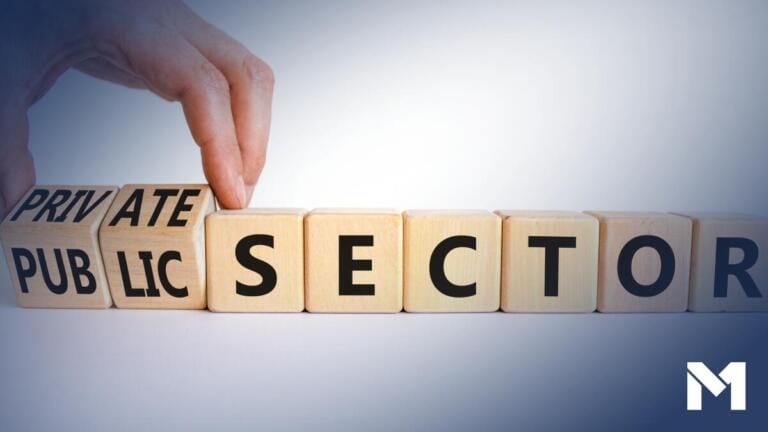Understanding Cryptocurrency Wallets: A Comprehensive Guide
Cryptocurrency wallets are digital tools that manage the cryptographic keys giving you access to your digital assets on the blockchain. Unlike physical wallets, they don’t…
Continue your personal finance journey by learning about how financial products work and how you can use them to save for the future.

Cryptocurrency wallets are digital tools that manage the cryptographic keys giving you access to your digital assets on the blockchain. Unlike physical wallets, they don’t…

Decentralized finance (DeFi) refers to a new financial ecosystem built on blockchain technology, primarily the Ethereum network, aiming to provide financial services without centralized intermediaries….

Did you know that strategic shopping may help you reduce expenses? In the realm of personal finance, understanding when and how to buy is a…

In today’s consumer-driven economy, excessive spending can be a common financial challenge that may significantly impact long-term financial health. Understanding and addressing spending behaviors can…

Mortgage-backed securities (MBS) offer investors exposure to the mortgage market without direct property management. However, they come with their own set of risks and complexities….

Tax record-keeping is a crucial aspect of managing your finances effectively. This article provides general information on tax record-keeping practices, including how long to keep…

What exactly is collaborative philanthropy, and how can it amplify your impact? As we explore this evolving landscape, we’ll discover how joining forces can lead…

The information provided in this article is for general informational purposes only and should not be considered as tax or investment advice. Tax laws are…

Performance-based pay can be a powerful tool for increasing your earnings and aligning your efforts with company goals. This article explores the nuances of this…

Public vs private sector jobs present distinct career paths at a crucial crossroads in your professional journey. Your choice between these sectors can significantly influence…

Picture yourself walking confidently into your next job interview, armed with strategies that could help you negotiate a salary that may significantly increase your lifetime…

Want to stress less about finances and build wealth for the long term? It’s possible with the right mindset. Motivation is a key part of…
Check the background M1 Finance LLC with FINRA’s BrokerCheck
Disclosures
By using this website, you accept our Terms of Use and Privacy Policy and acknowledge receipt of all disclosures in our Disclosure Library. All agreements are available in our Agreement Library. M1 relies on information from various sources believed to be reliable, including clients and third parties, but cannot guarantee the accuracy and completeness of that information.
M1 is a technology company offering a range of financial products and services. “M1” refers to M1 Holdings Inc., and its wholly-owned, separate affiliates M1 Finance LLC, M1 Spend LLC, and M1 Digital LLC.
All investing involves risk, including the risk of losing the money you invest. Past performance does not guarantee future performance. Using M1 Borrow’s margin account can add to these risks, and you should review our margin account risk disclosure before borrowing. Nothing in this informational site is an offer, solicitation of an offer, or advice to buy or sell any security and you are encouraged to consult your personal investment, legal, or tax advisors.
Brokerage products and services are not FDIC insured, no bank guarantee, and may lose value. Brokerage products and services are offered by M1 Finance LLC, an SEC registered broker-dealer, Member FINRA / SIPC.
M1 Finance, LLC does not charge commission, trading, or management fees for self-directed brokerage accounts. You may still be charged other fees such as M1’s platform fee, regulatory fees, account closure fees, or ADR fees. For a complete list of fees M1 may charge visit M1’s Fee Schedule.
M1 is not a bank. M1 High-Yield Savings Accounts and Personal Loans are furnished by B2 Bank NA, Member FDIC and Equal Opportunity Lender, and serviced by M1 Spend LLC, a wholly-owned operating subsidiary of M1 Holdings, Inc.
M1 High-Yield Cash Account(s) is an investment product offered by M1 Finance, LLC, an SEC registered broker-dealer, Member FINRA / SIPC. M1 is not a bank and M1 High-Yield Cash Accounts are not a checking or savings account. The purpose of this account is to invest in securities, and an open M1 Investment account is required to participate in the M1 High-Yield Cash Account. All investing involves risk, including the risk of losing the money you invest.
Credit Card not available for US Territory Residents. Review Cardholder Agreement and Rewards Terms for important information about the Owner’s Rewards Card by M1. The Owner’s Rewards Card by M1 is Powered by Deserve and issued by Celtic Bank.
M1 Digital LLC is a wholly separate affiliate of M1 Finance LLC, and neither are involved with the execution or custody of cryptocurrencies. Cryptocurrencies are not FDIC or SIPC insured. For relevant crypto disclosures and risks, visit Crypto Disclosures.
All product and company names are trademarks™ or registered® trademarks of their respective holders. Use of them does not imply any affiliation with or endorsement by them.
App Store is a service mark of Apple Inc. Google Play and the Google Play logo are trademarks of Google LLC.
M1 Finance LLC
200 N LaSalle St., Ste. 810, Chicago, IL 60601
© Copyright 2025 M1 Holdings Inc.